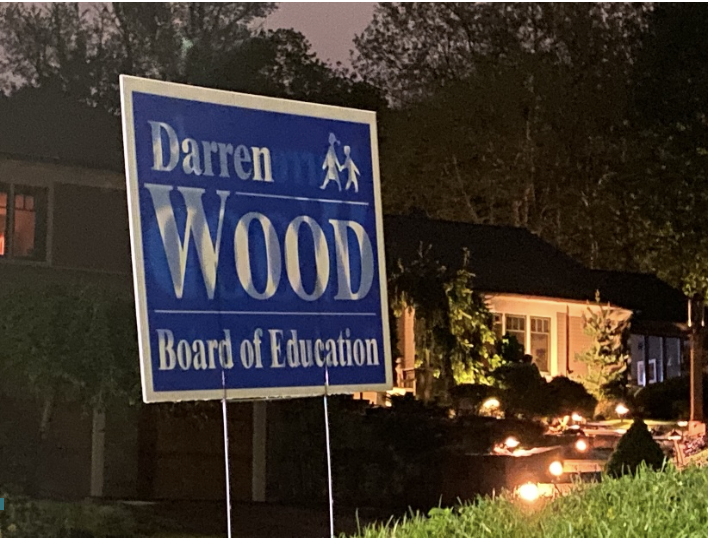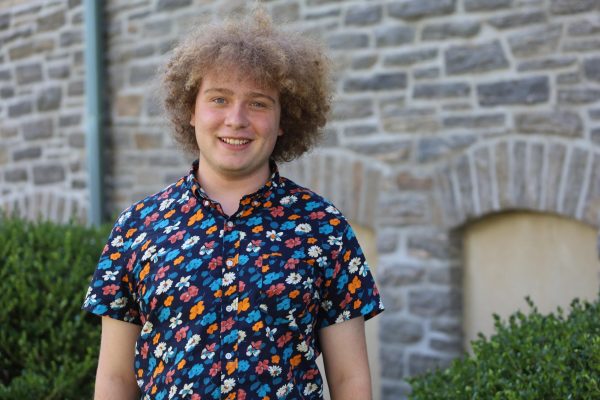Darren Wood Running for Dobbs Ferry School Board
May 17, 2022
Darren Wood, an English teacher at Masters, is running for a position on the Dobbs Ferry Board of Education. The election will take place on Tuesday, May 16.
“In this increasingly contentious and divided political landscape in America, I felt something of a responsibility, to think, not just to assume that people elected into office would not just advocate for the things that I knew to be true, or that I would advocate for them myself.” Wood said of his motivation to campaign.
The election will be held at-large for three of the board’s seven seats. Currently, there are six candidates. Dobbs Ferry is home to about 10,000 eligible voters, though turnout, especially in hyper-local elections such as this one, is often very low. According to Wood, of the 10,000 voters, the ones who show up could number only in the hundreds. Despite, or rather because of, the lack of overall enthusiasm from the Dobbs populace to come out and vote, campaigns are able to become enthusiastically energized, with signs popping up everywhere and controversies abound. Wood names such a salacious panic as the key reason he is running.
“There is actually building local opposition to advancing the work of diversity, equity, and inclusion in the district. It also became clear that no one who was interested in diversity, equity, and inclusion and advancing those initiatives was interested in running this time, so I saw an opportunity to sustain that work and protect that work,” Wood said. At the moment, Wood is serving on the Dobbs Ferry school board’s DEI taskforce, and began to notice from an ordinary citizen’s point of view how basic DEI initiatives can meet fierce opposition even in Dobbs Ferry, a village that voted nearly 72-28% for Biden in 2020.
“As a member in public attendance at Board of Ed meetings it became clear that there is this building opposition to advancing the work of diversity, equity, and inclusion, a lot of it was captured in anti-Critical Race Theory language. The opposition seemed quite organized, the comments they delivered at Board of Ed meetings all adhered to a specific formula, so it seemed like they were being consulted with and working with an organization on how to do this,” Wood said.
“The rhetoric was a lot of ‘we’re not racist, but…’ or ‘these are the members of my family that represent certain identity groups, so of course we’re not opposed to those it’s just…don’t do it in school, or don’t do it in the second grade,’” Wood continued, “[there were] anecdotes like some child had came home and said that the teacher had told them to feel guilty about being white, and so a lot of the rhetorical flourishes that you see around the nation are happening here.”
Wood, a lifelong educator, has become increasingly involved in these local debates around DEI and the Critical Race Theory hysteria, and a recurring theme was his role as a resident of Dobbs Ferry in dispelling the organized paranoia.
Not only is Wood a resident of Dobbs Ferry, but he is also a resident of the Masters campus himself, living here with his family.
“[We] are somehow within but also without Dobbs Ferry. Inside and outside…I think that is how a lot of faculty residents experience living in Dobbs Ferry, where we live in the town but we kind of live in a pocket inside the town,”
Wood notes, on his on-campus life at Masters, where resident faculty do not pay rent nor local taxes to the village itself. “It can exacerbate any feeling of alienation or separation from being a fully-vested participant in what happens in the town…but I think, this is true for me, I think it’s true for a lot of resident faculty, that your kids bring you deeper and deeper into the public schools, so just as a parent whose kids are in the public school system, I think like any parent we are excited and concerned about what’s happening at the schools our kids are attending.”




